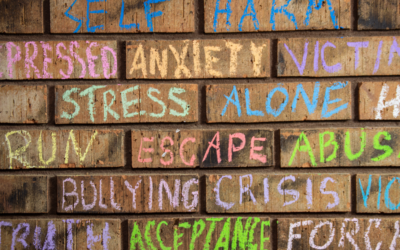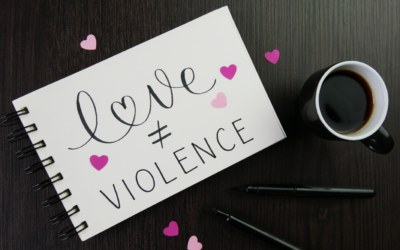Recognizing the Signs of Depression
Depression is more than just feeling sad—it’s a serious mental health condition that affects millions of people. Recognizing the signs early can make a big difference in getting the right help and support. This guide will walk you through the common symptoms of depression, why it’s important to seek help, and how to take the first step toward recovery.
What is Depression?
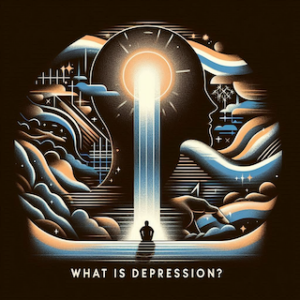
Depression is more than just feeling sad or having an off day—it’s a serious mental health condition that affects your thoughts, emotions, and behaviors. Unlike occasional feelings of sadness or stress, which are a normal part of life, depression is persistent and can last for weeks, months, or even years without treatment. It can impact your ability to work, maintain relationships, and enjoy the activities that once brought you happiness.
Depression does not discriminate. It can affect anyone, regardless of age, gender, or background. Life events like loss, trauma, or significant change can contribute to the onset of depression, but sometimes it occurs without an identifiable cause. It’s a complex condition influenced by a combination of genetic, biological, environmental, and psychological factors.
This condition is often misunderstood, leading many people to downplay or overlook the seriousness of their symptoms. However, depression is not a personal weakness or a character flaw—it’s a medical condition that requires proper care and treatment.
Recognizing the signs of depression is the first step toward understanding it. Seeking help from a mental health professional can lead to effective treatment, allowing individuals to regain control of their lives and find relief from their symptoms. With the right support, recovery is possible, and life can feel meaningful and fulfilling again.
Common Causes of Depression
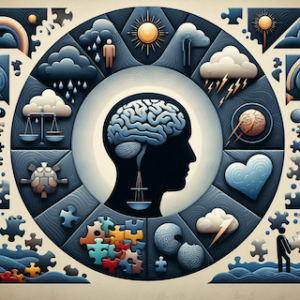
Traumatic or Stressful Life Events
Depression often arises from challenging or life-altering experiences. Events such as the loss of a loved one, a breakup or divorce, or the loss of a job can trigger overwhelming sadness and emotional distress. While feeling down after these events is natural, prolonged emotional struggles that aren’t addressed may develop into depression over time.
Chemical Imbalance in the Brain
The brain relies on neurotransmitters, including serotonin and dopamine, to regulate mood and emotions. A deficiency or imbalance in these chemicals can result in depressive symptoms like an inability to feel pleasure, persistent sadness, or emotional instability. These imbalances may occur naturally but can also be influenced by external factors. Treatments such as therapy and medications are effective tools for addressing these chemical irregularities.
Social and Environmental Factors
External factors, including social conditions and the surrounding environment, play a significant role in mental health. Social isolation, a lack of supportive relationships, or financial struggles can add layers of stress to an individual’s life, increasing the risk of developing depression. These factors can exacerbate feelings of hopelessness and make it harder to cope with challenges.
Personal Factors and History
Certain personal traits and experiences can increase an individual’s susceptibility to depression. For example, family history or genetic predisposition might make someone more vulnerable. Personality traits such as low self-esteem or a tendency toward self-criticism can also contribute to depressive feelings. Additionally, trauma or abuse—whether physical, emotional, or psychological—leaves a lasting impact on mental health. Substance and alcohol use, often turned to for temporary relief, disrupt brain function and may worsen depressive symptoms rather than alleviate them.
Psychological Symptoms
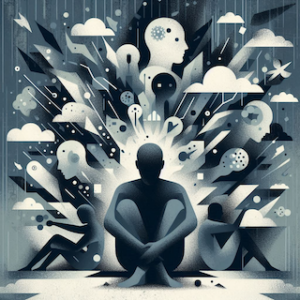
Persistent Low Mood and Sadness
One of the most common signs of depression is feeling consistently sad or having a low mood that doesn’t go away. This goes beyond occasional feelings of unhappiness—it’s a persistent state that affects daily life and well-being. People who are depressed may also experience overwhelming feelings of hopelessness, helplessness, and guilt, which can make it even harder to cope with day-to-day challenges.
Other Psychological Symptoms
Depression doesn’t just involve sadness—it can manifest in many ways. Common symptoms include feeling tearful, irritable, and intolerant of others. People may also lose interest in things they once enjoyed, like hobbies or spending time with loved ones. Decision-making and motivation can become difficult, as depression often makes even simple tasks seem overwhelming. In severe cases, individuals may experience suicidal thoughts or consider harming themselves.
Increased Anger or Irritability in Men
Depression doesn’t always look the same for everyone. In some cases, especially in men, depression can appear as increased anger or irritability rather than sadness. These differences may stem from societal expectations about how men “should” express emotions, leading to misunderstandings or misdiagnoses. Unfortunately, this can decrease the likelihood of men seeking help, as their symptoms may be dismissed or overlooked.
Physical Symptoms
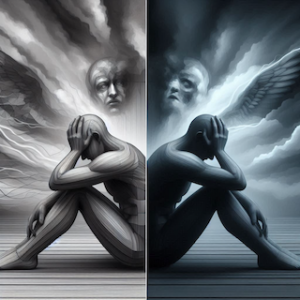
Depression is not just a mental or emotional condition—it often manifests through physical symptoms that can be difficult to recognize as related to mental health. Understanding these physical signs is essential for identifying depression and seeking proper care.
Common Physical Symptoms of Depression
Depression can affect the body in many ways. Some common physical symptoms include:
- Changes in appetite or weight: This might involve eating significantly more or less than usual, leading to noticeable weight gain or loss.
- Digestive issues: Constipation or other stomach problems may arise without a clear physical cause.
- Unexplained aches and pains: Persistent headaches, back pain, or muscle soreness can be linked to depression.
- Lack of energy: Feeling constantly fatigued or physically drained, even after adequate rest.
- Low sex drive: A decreased interest in intimacy is also a common symptom.
Sleep Disturbances
Many people with depression experience sleep problems. This may include difficulty falling asleep at night or waking up very early in the morning. These disrupted sleep patterns often contribute to fatigue and make it even harder to manage daily life.
Physical Symptoms in Women
For women, depression can sometimes lead to changes in menstrual cycles. These changes, though seemingly unrelated, are often tied to the body’s response to the condition.
Slowed Movements or Speech
Another physical symptom of depression is moving or speaking more slowly than usual. This can sometimes be mistaken for laziness or a lack of interest, but it’s actually a result of the condition and should not be dismissed.
Please seek the guidance of a medical health professional if you are experiencing ongoing physical symptoms.
Social Symptoms
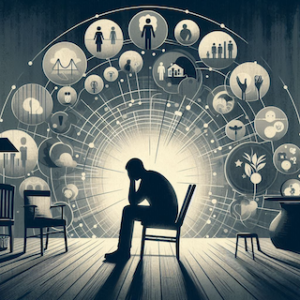
Depression doesn’t just affect your emotions and physical health—it can significantly impact your social life and relationships. Understanding the social symptoms of depression is essential for identifying the condition and finding effective ways to cope.
Withdrawal from Social Activities
One of the most common social symptoms of depression is withdrawing from social activities and avoiding contact with friends and loved ones. When dealing with depression, you may feel a lack of energy or motivation to participate in events, respond to messages, or return calls. This withdrawal can lead to feelings of isolation and further contribute to the sense of loneliness often associated with depression.
Neglecting Hobbies and Interests
People with depression frequently lose interest in activities that once brought them joy and purpose. This apathy can make it challenging to stay engaged with hobbies, sports, or creative outlets. Over time, this disconnection from fulfilling activities may heighten feelings of disengagement and dissatisfaction with life.
Challenges in Work and Family Life
Depression often extends its impact to home, work, and family dynamics. You may find it harder to stay productive at work, focus on tasks, or meet deadlines. In some cases, depression can even lead to job loss. At home, changing moods and behaviors may put a strain on relationships with loved ones, causing misunderstandings or conflicts. These social struggles can deepen the cycle of depression and make it feel even harder to overcome.
Mindfulness and Coping Strategies

Depression can feel overwhelming, but there are strategies that can help you manage its symptoms and improve your quality of life. One powerful approach that has gained recognition in recent years is mindfulness.
Mindfulness is the practice of being fully present in the moment and paying attention to your thoughts and emotions without judgment. By observing your feelings with curiosity and objectivity, mindfulness helps you uncover the root causes of your depression and develop healthy coping strategies.
How Mindfulness Helps with Depression
Grounding Techniques
When you’re feeling overwhelmed, mindfulness can help you stay anchored in the present. Simple grounding techniques, like focusing on your breath or noticing physical sensations in your body, can reduce feelings of anxiety and stress. These small practices can make a big difference in regaining a sense of calm.
Meditation
Regular meditation has been shown to ease depression symptoms. It can improve your mood, reduce stress, and enhance your overall sense of well-being. Even a few minutes of daily meditation can foster inner peace and resilience.
Mindful Self-Compassion
Practicing mindful self-compassion involves being kind and supportive to yourself, especially during difficult times. By accepting your emotions without harsh judgment, you can build a more positive self-image and learn to treat yourself with the same care you’d offer a friend.
Mindful Awareness
Mindful awareness helps you identify and challenge negative thought patterns that fuel depression. By recognizing these unhelpful thoughts, you can begin to replace them with more balanced and hopeful perspectives, breaking the cycle of negativity.
Other Coping Strategies to Complement Mindfulness
In addition to mindfulness practices, there are several other coping strategies that can help manage depression symptoms:
- Exercise: Regular physical activity releases endorphins, which can boost your mood.
- Spending time in nature: Being outdoors can reduce stress and enhance emotional well-being.
- Social support: Connecting with friends, family, or support groups provides encouragement and reduces isolation.
- Self-care: Healthy habits, like getting enough sleep, eating a balanced diet, and avoiding alcohol or drugs, are essential for maintaining mental health.
Seeking Professional Help

While mindfulness techniques and self-care strategies are helpful for managing mild to moderate depression, seeking professional help is essential when symptoms persist or worsen. If you’re experiencing ongoing feelings of sadness, hopelessness, or thoughts of self-harm, reaching out to a mental health professional can make a significant difference.
Overcoming the Stigma of Seeking Help
It’s common for people to hesitate when considering professional help due to the stigma surrounding mental health. However, seeking support is a sign of strength and courage. Taking that step can lead to positive changes, better mental health, and improved quality of life.
What a Mental Health Professional Can Do
A mental health professional can provide a thorough evaluation, diagnose depression, and create a personalized treatment plan. Common treatment options include:
- Talk therapy: This involves discussing your emotions and challenges with a therapist to better understand and manage them.
- Medication: Antidepressants or other medications may help regulate mood and ease symptoms.
- Combination of therapies: Many people find a mix of therapy and medication to be most effective.
It’s important to remember that treatment may involve some trial and error to find the right approach for your needs. Recovery takes time, but with persistence, it is achievable.
How to Start
If you’re unsure where to begin, your primary care provider can be a great starting point. They can refer you to a trusted mental health professional or provide resources in your area. Additionally, many health insurance plans cover mental health services, so check with your provider to understand your coverage.
Depression Is Treatable
Depression is a medical condition that can be treated effectively with the right care and support. If you or someone you know is struggling, don’t hesitate to reach out. Seeking professional help is a vital step toward recovery and a brighter future. You don’t have to face this journey alone—support is available to guide you toward healing. Take that first step and schedule an appointment today.
Emergency Hotlines: Get Help When You Need It
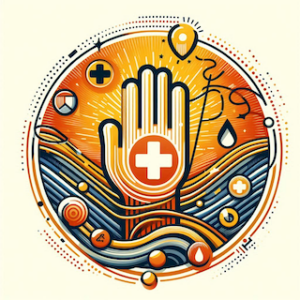
If you or someone you know is in crisis, remember that help is always available. No matter the situation, reaching out can make a critical difference in saving lives and finding support.
Suicide Prevention Hotline
For immediate support, you can call or text 988. Trained professionals are available 24/7 to listen, provide guidance, and help you navigate your feelings. If you’re struggling or worried about someone else, this resource is here for you.
US Veterans Hotline
Veterans can text 838255 to connect with counselors who understand the unique challenges of military service and mental health. Support is tailored to your needs, ensuring you get the help you deserve.
Call 911
In emergencies, don’t hesitate to dial 911 or your local emergency number. Immediate action can be crucial in life-threatening situations.
Supporting a Loved One in Crisis
If someone you care about is in danger of suicide or has made a suicide attempt:
- Stay with them: Never leave a person in crisis alone. Your presence is vital.
- Seek help immediately: Call 911 or your local emergency number for urgent assistance.
- Visit the emergency room: If you can safely transport the person, take them to the nearest hospital for emergency care.
You’re Never Alone
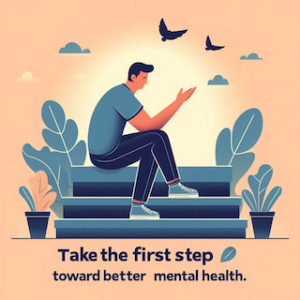
No matter how challenging things feel, support is always within reach. If you or a loved one is struggling, don’t wait to take action. These emergency resources are here to provide help, hope, and healing. Reach out today—you are not alone.





